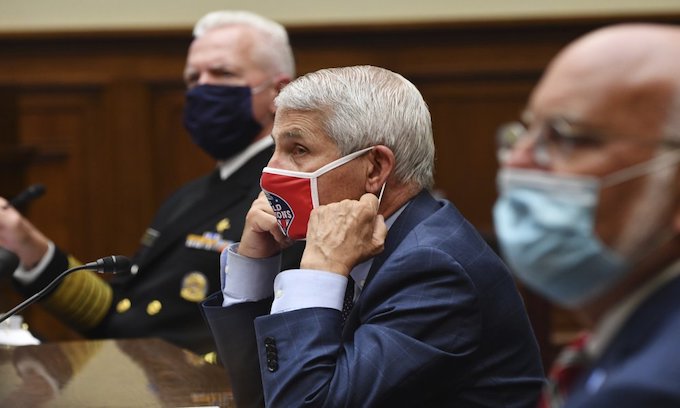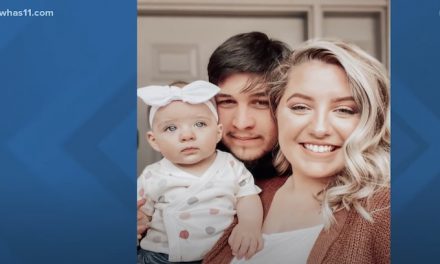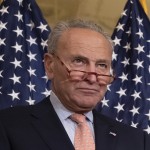GOP Rep. Jim Jordan had a combative exchange on Friday with longtime National Institute of Allergy and Infectious Diseases director Anthony Fauci over whether protests of police violence around the country are spreading coronavirus.
“For 63 days, nine weeks, it’s been happening in Portland,” Jordan said.
Fauci, Centers for Disease Control and Prevention director Robert Redfield and Assistant HHS Secretary Brett Giro on Friday testified before the House Select Committee on the Coronavirus. Other members of the bipartisan committee grilled them on subjects including development of a vaccine for the virus, the safety of reopening schools and President Donald Trump’s handling of the crisis.
Jordan, a Trump allied co-founder of the conservative House Freedom Caucus, used his time to weigh in against government limits on church gatherings and business operations during the pandemic, while Black Lives Matter protests of police violence are allowed.
Jordan argued that allowing protests while cracking down on church services amounts to favoring one First Amendment liberty over another. He asked Fauci whether the protests are spreading coronavirus. Jordan did not offer an explanation as to how the government might go about disallowing protests to happen.
“Crowding together, particularly when you’re not wearing a mask, contributes to the spread of the virus.” Fauci responded.
“Should we limit the protesting?” Jordan continued.
“I’m not in a position to determine what the government can do in a forceful way,” Fauci responded.
“I haven’t seen people during a church service go out and harm police officers or burn buildings,” Jordan continued. “No limit to protests, but you can’t go to church on Sunday.”
Jordan said Fauci had advocated for “certain businesses to be shut down, arguing that he hadn’t “seen one hair stylist who, between haircuts, goes out and attacks police or sets something on fire, but we’ve seen all kinds of that stuff during protests and we know the protests actually increased the spread of the virus. You’ve said that.”
“I said crowds,” said Fauci. “I didn’t say protests do anything … Crowds are known, particularly when you don’t have a mask, to increase the acquisition and transmission.”
Come on man!!! This is part of the reason republicans are so pissed – Fauchi will comment on everything from what kind of tinder sex people can have to baseball but protesting… not his department. https://t.co/TVEtkCLQrs
— Meghan McCain (@MeghanMcCain) July 31, 2020
***
Fauci also poked holes in a Michigan hospital’s recent study involving the use of hydroxychloroquine as a coronavirus treatment, calling it a “flawed” trial.
On July 2, Detroit’s Henry Ford Health System published a report that found hydroxychloroquine cut the death rate in sick patients hospitalized with COVID-19, without heart-related side-effects. But Fauci said the study wasn’t a randomized, placebo-controlled trial, which he called the gold standard for such studies.
“The Henry Ford Hospital study that was published was a non-controlled, retrospective cohort study that was confounded by a number of issues including the fact that many people who received hydroxychloroquine were also receiving cortical steroids, which we know from another study gives a clear benefit in reducing deaths with advanced disease.
“So that study is a flawed study.”
Related Story: Treatment with Hydroxychloroquine Cut Death Rate Significantly in COVID-19 Patients, Henry Ford Health System Study Shows
In a large-scale retrospective analysis of 2,541 patients hospitalized between March 10 and May 2 across the system’s six hospitals, 13% of those treated with hydroxychloroquine alone died, compared to 26.4% not treated with the malaria drug.
Dr. Marcus Zervos, division head of Infectious Disease for the health system, who co-authored the study, said the findings were highly analyzed and peer-reviewed.
“We attribute our findings that differ from other studies to early treatment, and part of a combination of interventions that were done in supportive care of patients, including careful cardiac monitoring,” Zervos said in a prepared statement.
“Our dosing also differed from other studies not showing a benefit of the drug. And other studies are either not peer-reviewed, have limited numbers of patients, different patient populations or other differences from our patients.”
The study was published in the International Journal of Infectious Diseases, the peer-reviewed, open-access online publication of the International Society of Infectious Diseases.
Asked about the trial, Fauci said, “You can peer-review something that’s a bad study.”
He went on to say that none of the randomized, placebo-controlled trials have shown any efficacy of hydroxychloroquine for use in treating coronavirus patients.
“Having said that, I will state, when I do see a randomized, placebo-controlled trial that looks at any aspect of hydroxychloroquine, either early study, middle study or late, if that randomized, placebo-controlled trial shows efficacy, I would be the first one to admit it and promote it.”
“I don’t have any horse in the game one way or the other. I just look at the data.”
According to the U.S. Centers for Disease Control & Prevention, hydroxychloroquine is a U.S. Food & Drug Administration (FDA)-approved arthritis medicine that also can be used to prevent or treat malaria. It is available in the United States by prescription only.
On June 15, the FDA determined that based on emerging scientific data, chloroquine and hydroxychloroquine are “unlikely to be effective in treating COVID-19.” The FDA revoked the emergency use authorization that allowed for the drugs to be used to treat certain hospitalized patients with COVID-19.
— Justin P. Hicks, mlive.com
___
(c)2020 The Oregonian (Portland, Ore.)
Visit The Oregonian (Portland, Ore.) at www.oregonian.com
Distributed by Tribune Content Agency, LLC.
—-
This content is published through a licensing agreement with Acquire Media using its NewsEdge technology.



















Recent Comments